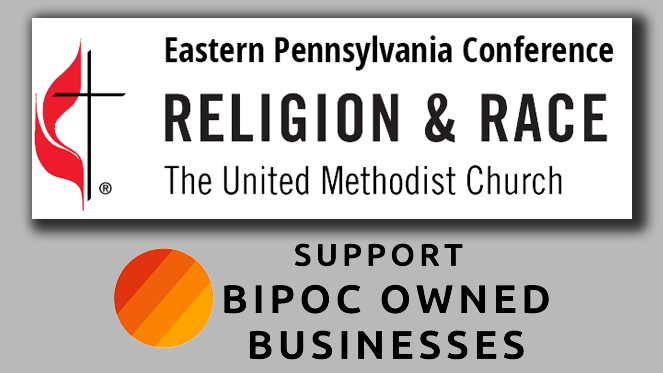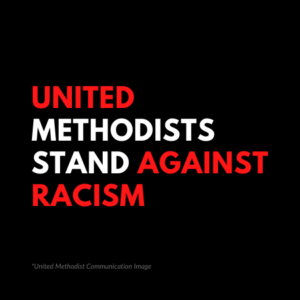
Read CORR Statement: A Commitment to Support BIPOC-Owned Businesses
The EPAUMC Commission on Religion and Race (CORR) is recommending that all conference ministry committees, agencies and administrative bodies join it in supporting businesses owned by Black and Indigenous People of Color (BIPOC). That includes buying from them, recommending them to others and supporting their efforts to become established in communities.

“We, the members of the Commission on Religion and Race (CORR), in conjunction with the Healing the Wounds of Racism Core Accountability Team, are advancing our efforts to work for racial justice and reconciliation,” begins the statement approved by members in November. “We seek to foster new learnings, understandings and commitments, as individuals in our denomination and in the world, to address the consequences that racial injustice and disharmony have manifested in the oppression of Black, Indigenous and all People of Color (BIPOC).”
Noting that its mission is “to challenge, equip and enable full and equal participation of the racial constituency of EPAUMC,” the commission’s statement cites its desire also to do more by “demonstrating in tangible ways our support for BIPOC people and organizations. To that end, we are committing to direct 25 percent of our budget expenditures to support BIPOC-owned businesses as an act of our Christian witness for justice, affirming and supporting the valuable contributions made in society by BIPOC people.”
In fact, co-chairwoman the Rev. Susan Worrell reports that “65 percent of CORR’s expenditures so far this year have been from BIPOC businesses or individuals providing goods and services.”
Described as “a show of solidarity and support for the value of goods and services offered by BIPOC people,” the statement recommends other conference bodies to join in its commitment or “adopt a similar commitment.”

CORR members have also researched and recommended resources for identifying BIPOC-owned, mostly small businesses. They recommend conference, agency and church leaders consider such businesses for cleaning, office cleaning and supplies, tech hardware and services, etc.
“Despite encouraging growth Black business owners continue to face a disproportionate number of challenges, namely a lack of access to capital, and these obstacles have only been exacerbated by the COVID-19 pandemic,” reported corporate finance executive Jenn Flynn in Forbes magazine, Feb 23, 2021 (“Why It’s Crucial To Support Black-Owned Businesses On Both Corporate, Consumer Levels”). The number of active Black-owned businesses fell 41 percent between February and April 2020.
“We Need to Support Black-Owned Businesses” is the title of a July 6, 2020, Philadelphia Magazine article that recommends where to find such enterprises and asserts an increasingly popular view: “Shopping at and supporting Black-owned businesses is one step we can all take to begin confronting racial economic inequality.”
Other found sources include:
- 86 Black-Owned Food Businesses in Eastern Pennsylvania
(https://www.paeats.com/feature/black-owned-food-businesses-in-southeastern-pennsylvania/) - Chestnut Hill Black-Owned Businesses (https://chestnuthillpa.com/bipoc-businesses/)
- Black Owned Businesses in the Philly Suburbs (https://mainlinetoday.com/life-style/black-owned-businesses-philadelphia-main-line/)
- Black Owned Businesses in Chester County (https://wcasj.org/black-owned-businesses/)
- Philadelphia Black-Owned Bookstores You Can Shop at Now
CORR invites suggestions from conference and church members of other information sources for identifying BIPOC-owned businesses across the regions. Contact: communications@epaumc.org.
Read CORR Statement: A Commitment to Support BIPOC-Owned Businesses
